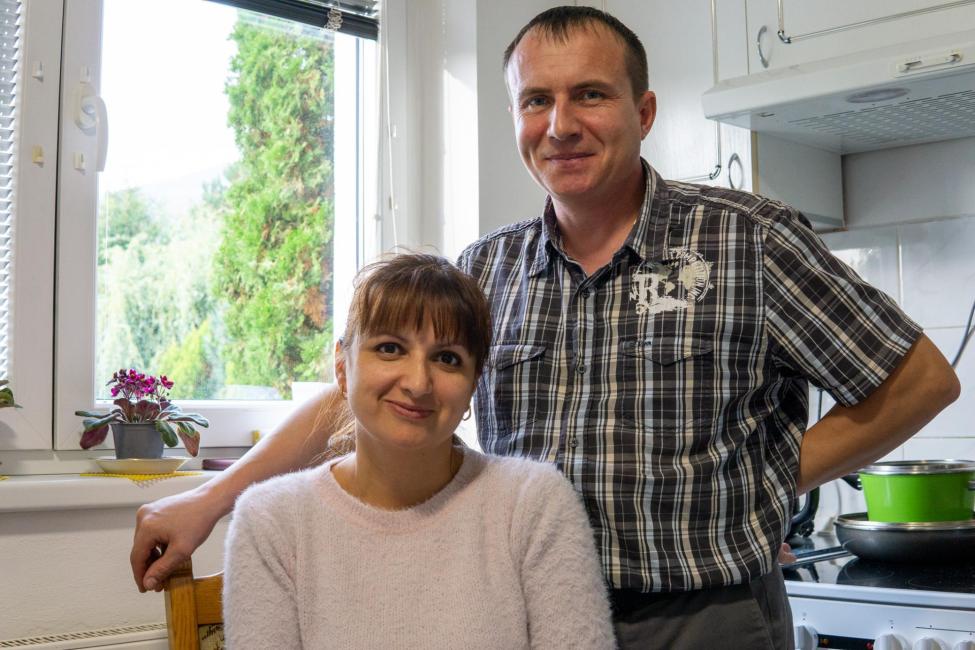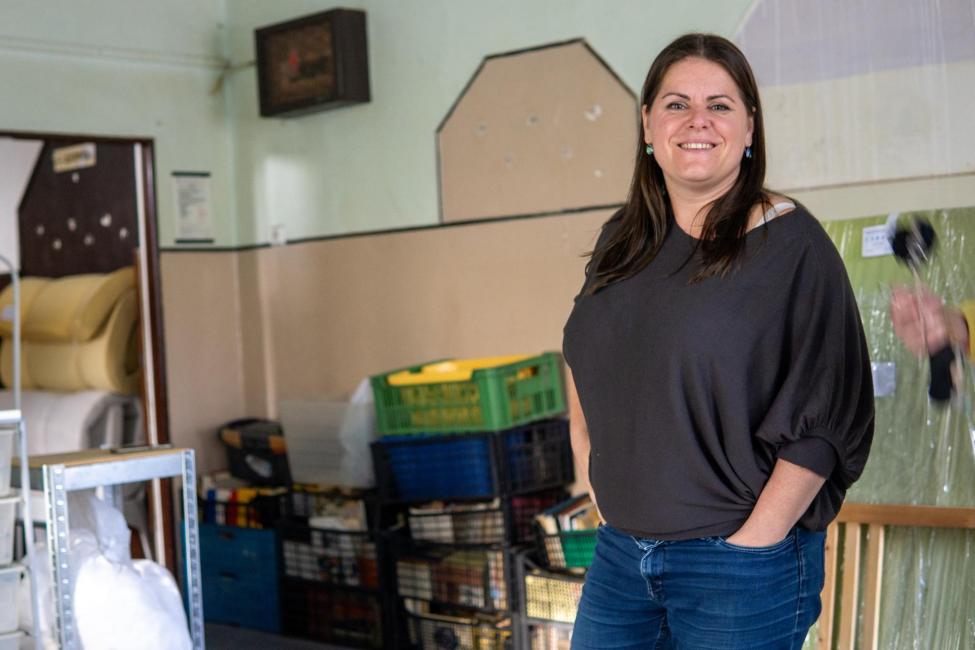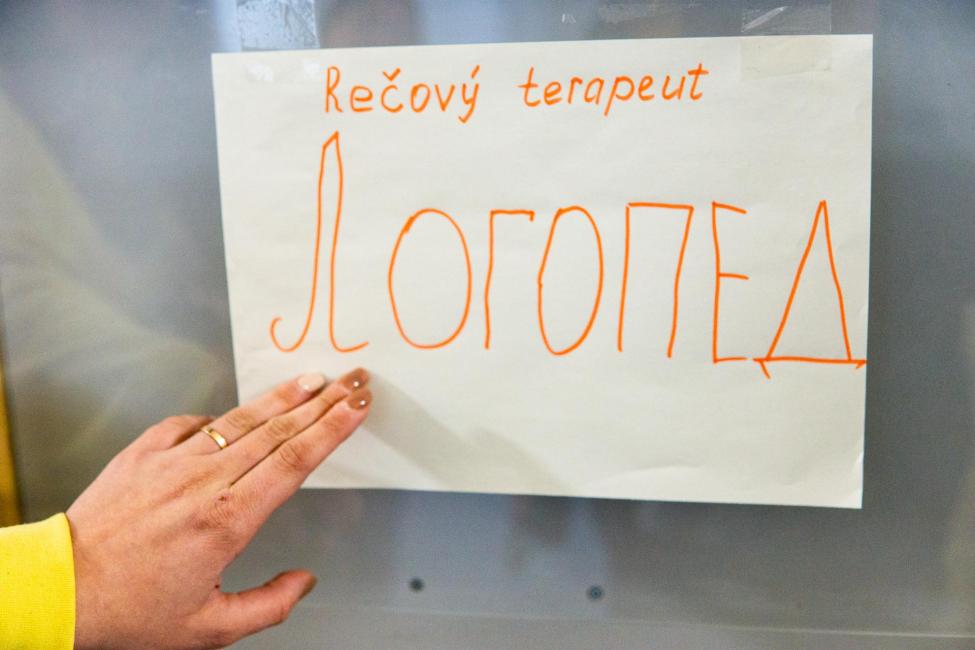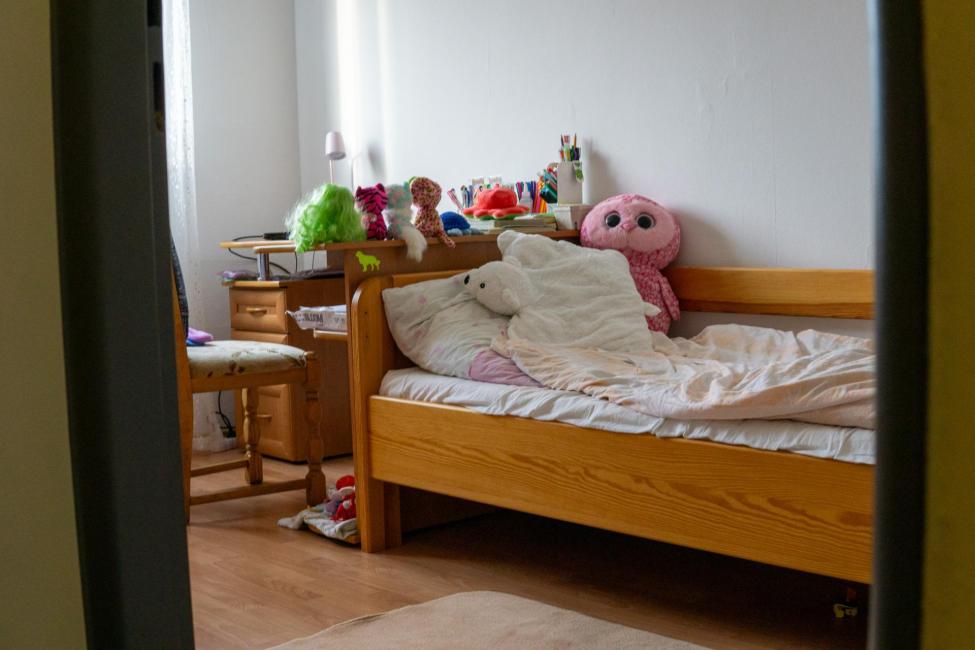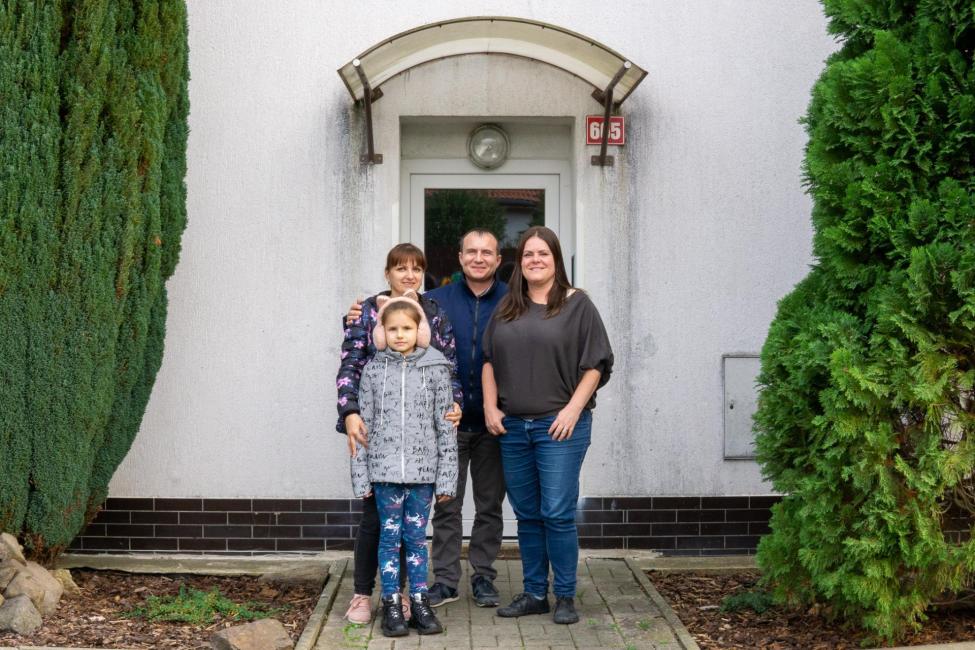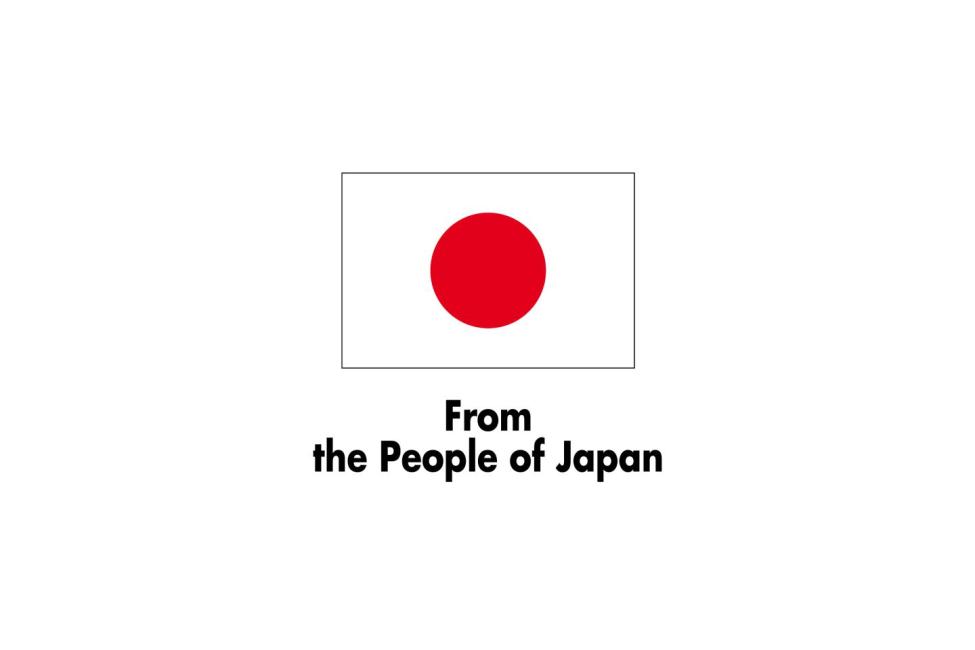-
Who We Are
WHO WE AREThe International Organization for Migration (IOM) is part of the United Nations System as the leading inter-governmental organization promoting since 1951 humane and orderly migration for the benefit of all, with 175 member states and a presence in over 100 countries. IOM has had a presence in Czechia since 1998.
About
About
IOM Global
IOM Global
-
Our Work
Our WorkAs the leading inter-governmental organization promoting humane and orderly migration, IOM plays a key role to support the achievement of the 2030 Agenda through different areas of intervention that connect both humanitarian assistance and sustainable development. Across Czechia, IOM provides a comprehensive response to the humanitarian needs of migrants, internally displaced persons, returnees and host communities.
Cross-cutting (Global)
Cross-cutting (Global)
- Data and Resources
- Take Action
- 2030 Agenda
Příběh v češtině k přečtení na tomto odkazu.
--
Lesia and Olexandr decided to leave Ukraine and go to Czechia mainly for the safety of their children. Starting out in a new country was difficult, but thanks to the support of civil society in the city of Teplice, they managed to find decent housing, their children are now in school and Olexandr works as a bus driver, of which there is a great shortage in the region. The family is one of the first in the city to be helped by the International Organization for Migration (IOM) to pay a rent deposit and find decent housing. According to IOM Czechia research the lack of money to pay the market rent or the mandatory security deposit is the main obstacle preventing refugees from moving into rental accommodation.
The rockets were flying everywhere
Before the Russian invasion of Ukraine in February 2022, Lesia and Olexandr lived a peaceful life. Olexandr worked as a driver and Lesia earned her living as a hairdresser. Both are from Zhytomyr region of Ukraine, near the capital Kiev, where they lived with their daughter Veronika and two sons, Yuri and Viktor.
The start of full scale war came as a huge shock to both spouses and their children. Tanks, military vehicles, constant sirens and rocket fire turned their peaceful life into a nightmare. The cellar was prepared for them to spend long days and nights in it.
"Fortunately, the Russian army bypassed our town, but there were still rockets flying around. When the children went to school, they often didn't even get there because the sirens started blaring and they had to hide somewhere. Of course they took it very badly, we were always hiding in the basement," recalls Lesia, still visibly shaken.
After several months of fear and uncertainty, Olexandr decided to call his colleague who had fled to Krupka, in Czechia, and he told him he could come and see him. So they decided to leave their home, mainly for the sake of their children, whose lives and future they were most concerned about.
Ten people in a two-room apartment
The first fortnight in the Czech Republic was very difficult for the family, as they shared an apartment with Olexander's colleague, who lives with his family of five in a two-room flat. That made ten people in this small space.
"This is not uncommon in Teplice," says Lucie Beyerová, who together with her husband runs the Humanitarian Aid Center (CeHuPo), which supports Ukrainian refugees. "Often there are eight to ten people crowded into one apartment, which is not to the liking of the neighbors or the housing association. These people stay there for several weeks before they find some suitable housing."
Finding permanent housing
Finding decent housing in Teplice and the surrounding area is very complicated for newcomers who do not have contact, friends nor references There is not much available on the housing market, even for the arrival of large numbers of refugees from Ukraine. There are also several places in the region struggling with a social problems. The first housing that Lesia and Olexandr's family found was in just such a place. They spent the first ten months of their displacement in the Czechia in a small two-room apartment on the outskirts of Krupka. The children slept together in the living room and the parents in the kitchen. However, the apartment was too small for a large family and they did not feel comfortable in the flats.
"It's not entirely safe there," Lesia explains.
Shelter for newcomers
At that time, Lesia began offering free hairdressing services at the Humanitarian Aid Centre (CeHuPo) across from the Teplice train station. The local community had created a shelter for the new arrivals there, providing everything from basic necessities, help with finding housing, assistance at the authorities, Czech language lessons, yoga, gymnastics and Thai boxing classes.
When word got out that the family was looking for a place to live, Lucie Beyerová, the center's director, asked her friends if they would like to rent their house, which was empty at the time, to Lesia and Olexander. "It wasn't exactly easy," says Lucie. "A lot of people here have really bad experiences with renting. But I told her that they are really a very decent family, I wouldn't recommend anyone bad," she adds
Every crown counts
Life in the Czech Republic has not been easy for Lesia and Oleksandr's family so far. But when they start talking about their current situation and their future, they light up. Today they rent their own house and their children go to school. Oleksandr works for ČSAD Slaný as a bus driver and Lesia is looking for a job as a hairdresser. Their financial situation with three children is still challenging. They had to pay two months' rent and other living expenses, which brought a considerable financial burden. Therefore IOM Czechia, in cooperation with CeHuPo, helped the family to pay the security deposit and enable them to move into decent housing.
The main barrier to moving into a rental property is finances
Research conducted among Ukrainian refugees in Czechia show that the situation of Lesia and Olexandr is no exception. According to research carried out by IOM Czechia in spring 2023, the main factor preventing refugees in from moving to renting property is the lack of funds to pay for current rental costs and security deposits. This problem is most often cited by those currently living in other types of accommodation such as hostels, state humanitarian accommodation or housing provided by or Czechs or Ukrainians. This highlights a serious problem that refugees face when seeking stable, long-term housing in Czechia.
However, Olexandr and Lesia stay optimistic: "We know that we have to go an extra mile because we can't do everything on one driver's salary," they say together
This IOM Czechia activitiy that aims to support refugees from Ukraine with decent accommodation conditions is possible thanks to the support of the Government of Japan.
***
This story was written by Milan Votypka IOM Czechia. For more information, please contact fstowasser@iom.int.
